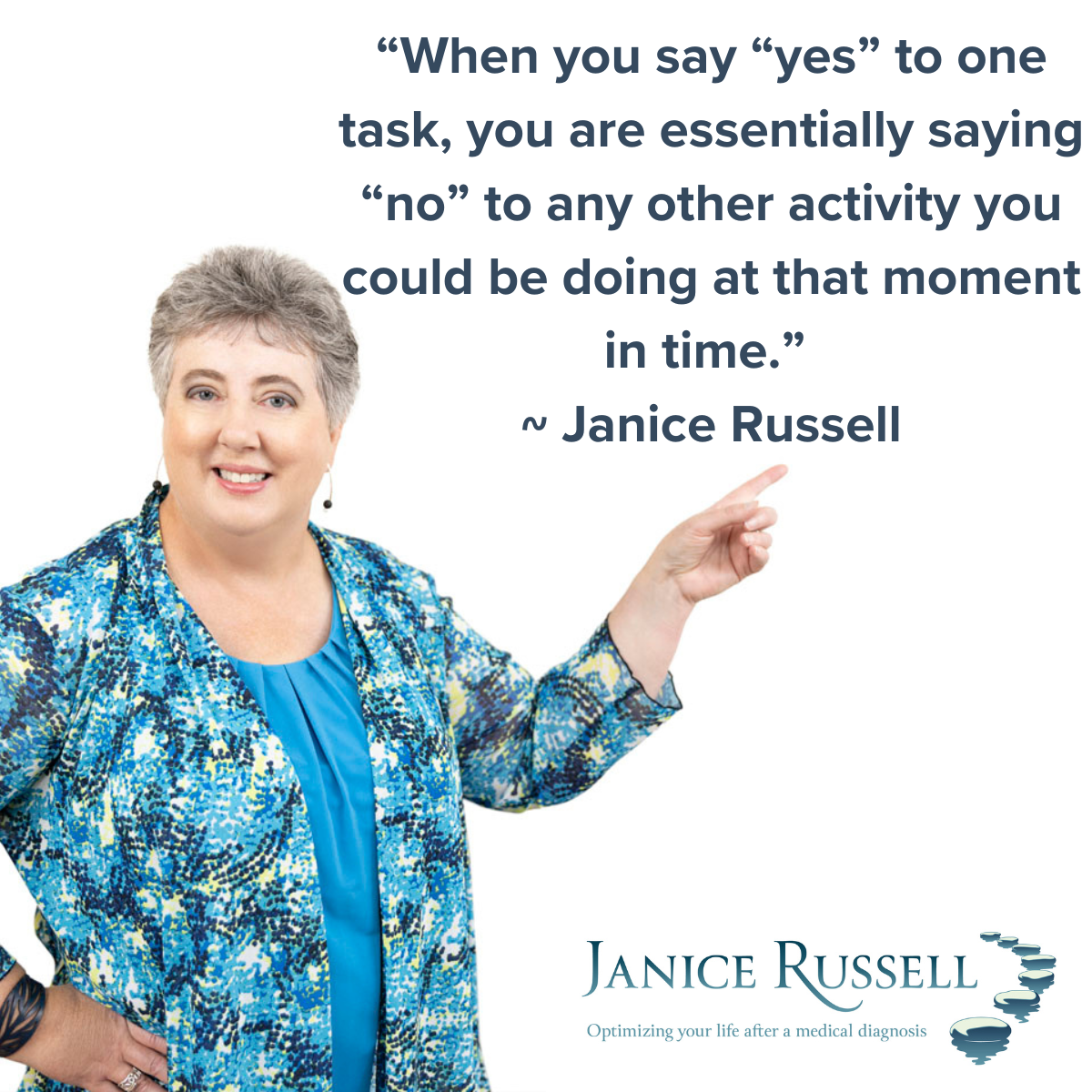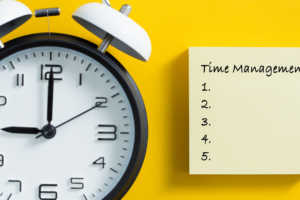
The 4 Best Reasons to Say “No”
Did you know that you don’t usually need a reason to say “no”? However, sometimes it feels better when you do…even if you don’t tell anyone else!😊
Just so we’re on the same page, let’s start with what “no” is and isn’t.
“No” is a neutral word, not a judgment of someone or something. “No” is positive, not negative. It increases your well-being in many ways, which will be discussed below. “No” is a declaration that you deserve a good quality of life, not a denial of the worth of a task or project.
Now on to the best reasons to say “no.”
INCREASE PRODUCTIVITY
You complete tasks more efficiently when you’re not interrupted.
How does “no” curtail unwanted intrusions?
In your personal life, “no” to a volunteer opportunity, going to an event you don’t want to, or responding to every ping from a digital device means you can complete the calls and documentation associated with an incorrect medical insurance claim, finish moving furniture around so you can move through the house more easily, or you continue journaling to clear your mind.
In your professional life, “no” to a meeting without an agenda, to an assignment that doesn’t match your skill-set, or to a co-worker asking for a favor, means you can bring the client proposal to completion in less time, create social media content to attract new clients, or finalize your quarterly reports.
Results of a research study done in the early 2000’s at the University of California at Irvine found that on average, it takes about 23 minutes for most workers to fully get back to a task after an interruption. And that was in the early 2000’s, imagine all the new sources of interruptions since then!
I broke my own chain of thought when I went looking for a more recent study while I was writing this post!😊 I finally found information posted in 2022 about a report by German Think Tank Next Work Innovation. Research on those in knowledge-intensive professions shows that people are interrupted an average of 15 times an hour. Each delay extends the task by 15-24%. No wonder it’s taking me so long to write this post!😊 Next time I have to say “no” to my desire to find research to back my articles!
DECREASE BURNOUT
Although most people consider “burnout” as something that only occurs in your professional life, I can attest to the fact that it’s also possible to suffer from total exhaustion due to the responsibilities of being an adult. I know that juggling health issues, scheduling home repairs, running a business, budgeting, family obligations, and other duties often makes me want to stop “adulting.”
“No” helps you avoid chronic stress which shows up as resentment, exhaustion, bitterness, physical pain, negativity, and reduced efficacy in your professional and personal life.
QUALITY OF LIFE
When you say “yes” to one task, you are essentially saying “no” to any other activity you could be doing at that moment in time. I intentionally use the word “activity” because sometimes when you say “yes” to work, you’re saying “no” to personal time (and vice versa).
Your “no” helps you protect your boundaries and manage competing priorities. You’re better able to focus on what’s important to you. It is a powerful tool that positively impacts your well-being, which promotes better balance between your personal and professional life.
The benefits can be even more significant if you’re dealing with a life-disrupting event, such as a medical diagnosis.
ROLE MODEL
Saying “no” demonstrates positive behavior to family, friends, co-workers, as well as your “future” self. It shows that you don’t have to say “yes” to every request. It illustrates that you respect yourself and your time.
In your professional life, when others see positive results after you’ve given an intentional “no,” their trust in your leadership and future decisions increases.
It’s helpful to keep these reasons top of mind during all your daily activities. It’s even more important when you have to re-prioritize tasks due to a life-impacting situation, such as a health event. Such circumstances often require time for doctor or lab appointments and treatment, including time in the waiting room. 😊
Which of these four reasons to say “no” will help you to “deploy your no” more often?
Let me know below so I can celebrate your future “nos” with you!



